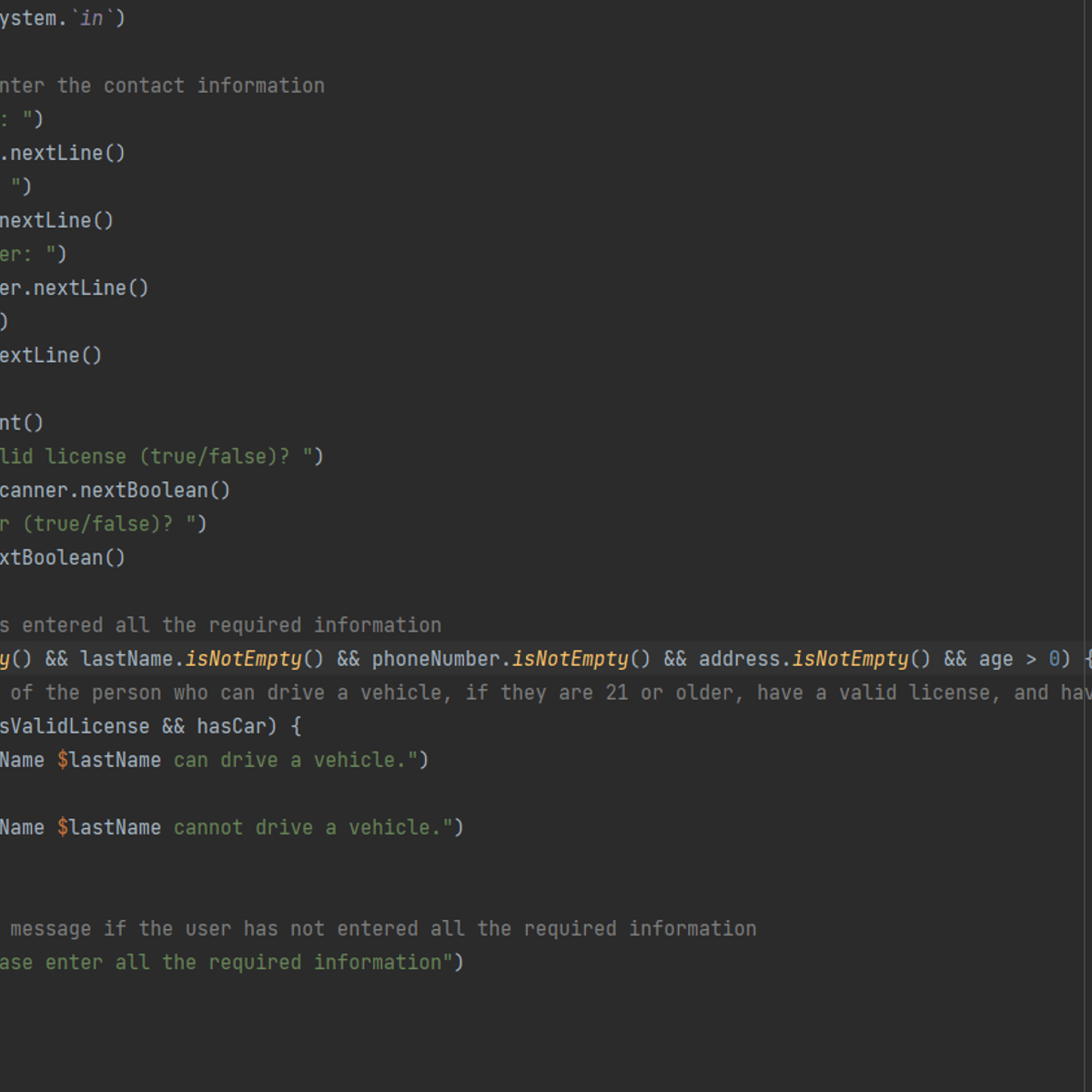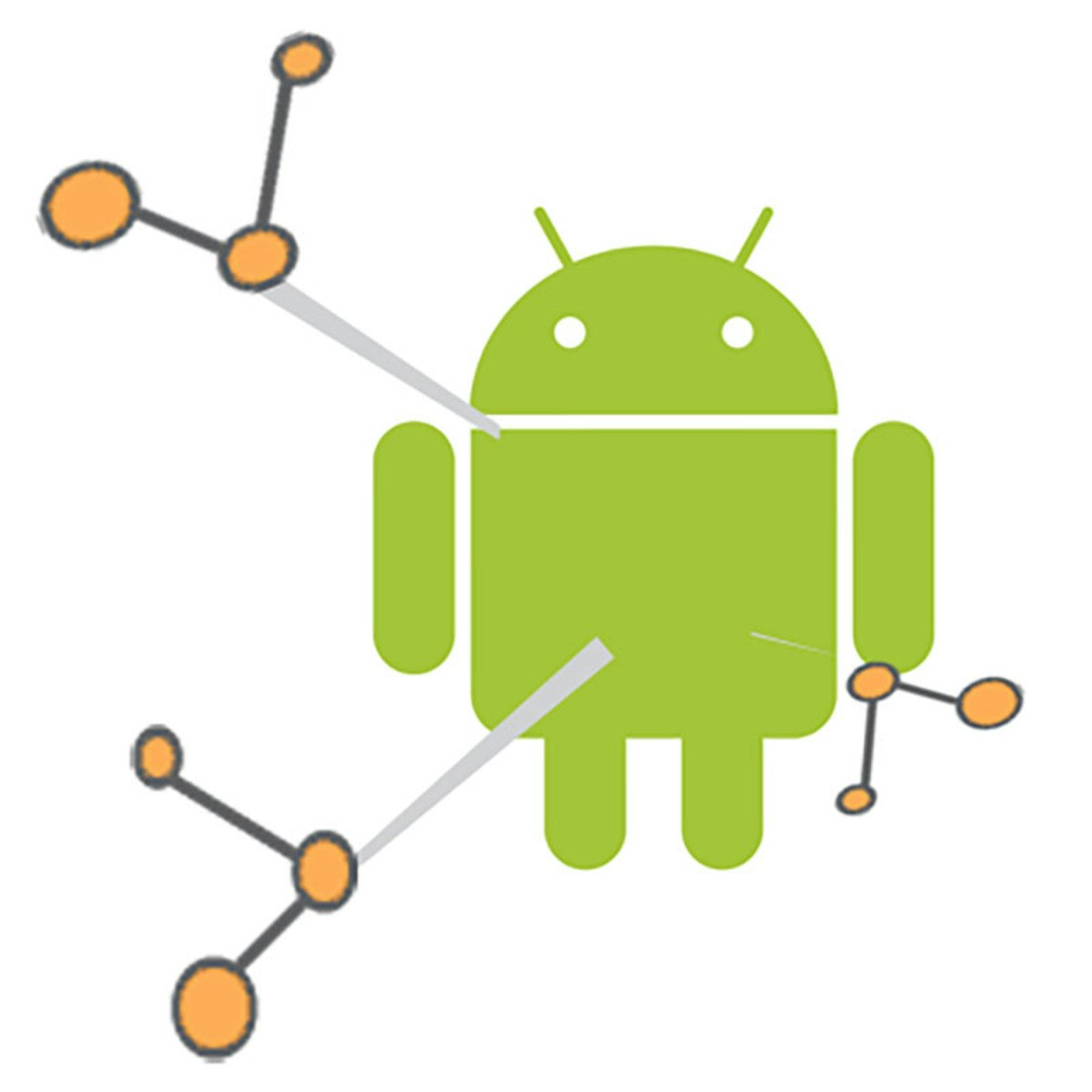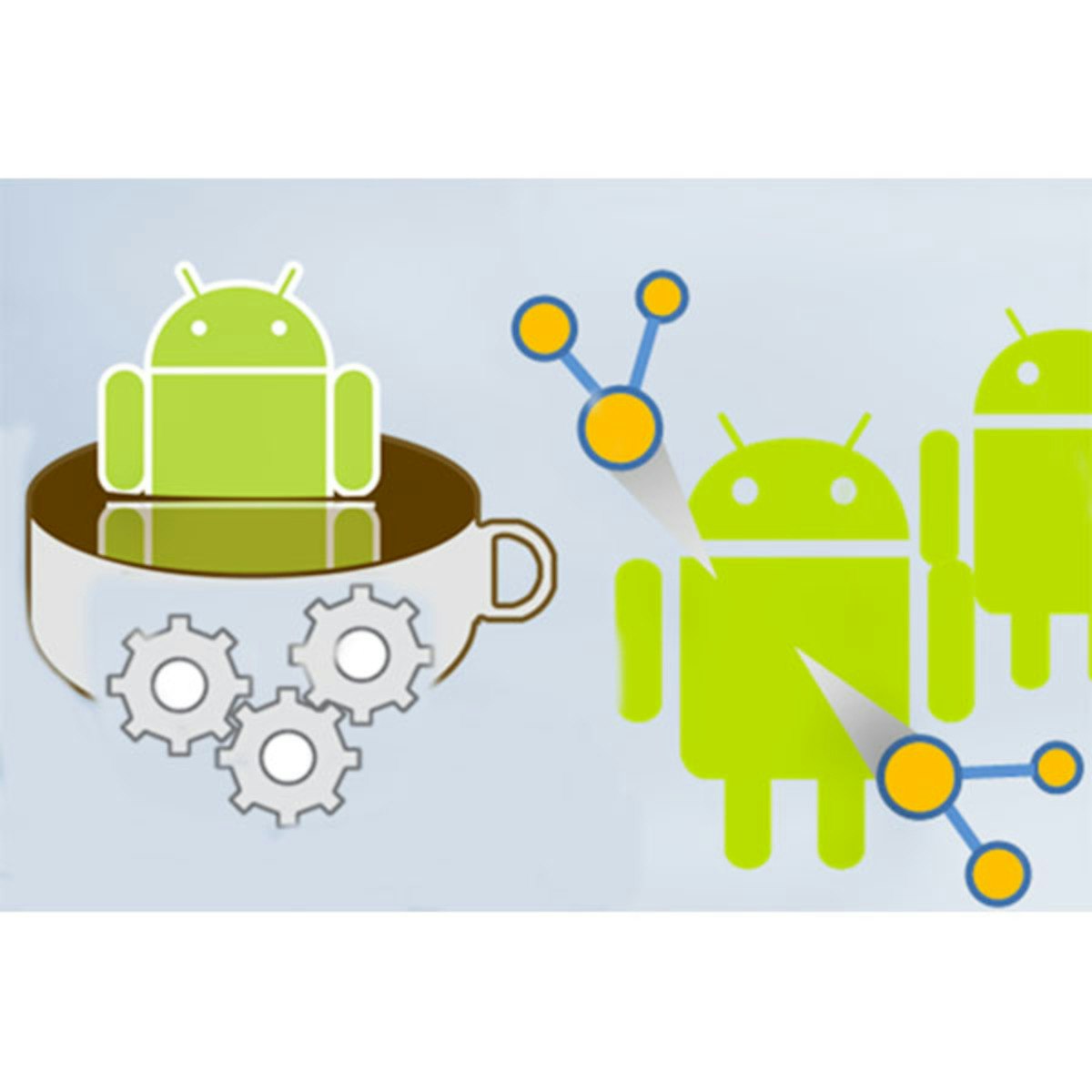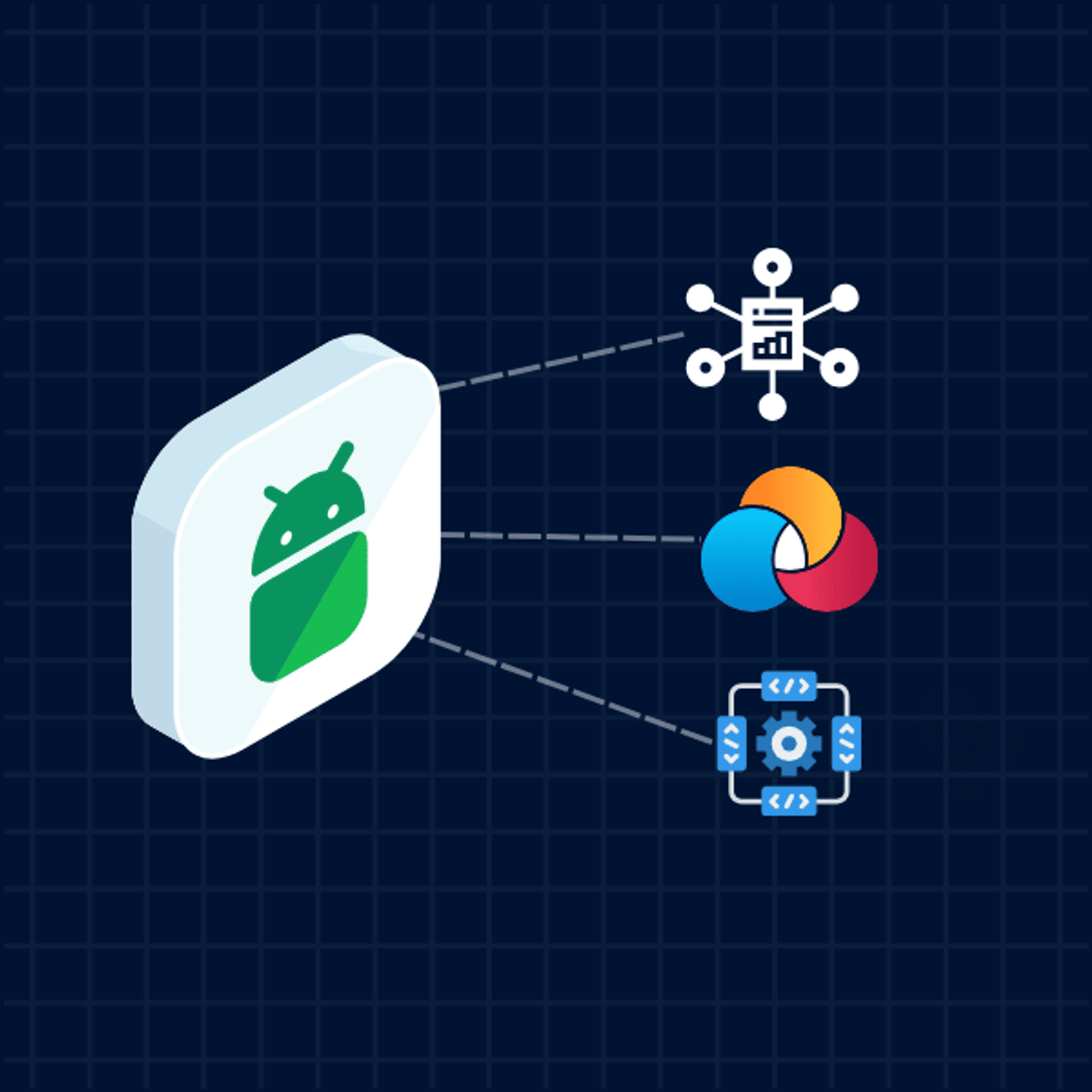Android Developer
Android Developer: Charting Your Course in Mobile App Creation
An Android Developer is a software specialist who designs, develops, and maintains applications for devices running the Android operating system. This involves writing code, primarily in languages like Kotlin or Java, using the Android Software Development Kit (SDK). Their work brings mobile applications to life, shaping how users interact with technology on billions of smartphones, tablets, wearables, and other smart devices worldwide.
Working as an Android Developer offers the chance to build products used by millions daily. You might find excitement in solving complex technical puzzles to create smooth, intuitive user experiences. The field is constantly evolving, presenting continuous learning opportunities as new technologies, devices, and platform updates emerge, ensuring the work remains dynamic and engaging.
What Does an Android Developer Do?
Defining the Role and Scope
At its core, Android development involves translating ideas and requirements into functional, user-friendly mobile applications. This encompasses the entire application lifecycle, from concept and design through development, testing, deployment, and ongoing maintenance. Developers write clean, efficient code, integrate with backend systems and APIs, and ensure the application performs well across a diverse range of Android devices.
The scope extends beyond just coding. Android Developers often collaborate closely with designers to implement user interfaces (UI) and ensure a positive user experience (UX). They work with quality assurance (QA) teams to identify and fix bugs, and sometimes interact with product managers to understand features and user needs. The ultimate goal is to create stable, scalable, and engaging applications that meet user expectations and business objectives.
Understanding the Android platform itself is crucial. This includes familiarity with its architecture, components (like Activities, Services, Content Providers, Broadcast Receivers), and the ever-expanding ecosystem of tools and libraries provided by Google, such as Android Jetpack.
Impact within the Tech Ecosystem
Android Developers play a vital role in the modern technology landscape. With Android powering the majority of smartphones globally, the applications they build are central to communication, entertainment, productivity, commerce, and countless other aspects of daily life. They create the mobile interfaces through which users interact with businesses, services, and information.
The work significantly influences user experience. A well-crafted Android app can provide seamless access to services, enhance productivity, or offer delightful entertainment. Conversely, a poorly designed app can lead to frustration and disengagement. Developers are key in bridging the gap between powerful technology and accessible, enjoyable user interactions.
Android apps often integrate with various other technologies, including cloud services, databases, third-party APIs, and increasingly, artificial intelligence (AI) and machine learning (ML) models. Developers ensure these integrations work smoothly, contributing to a connected and intelligent digital ecosystem.
These introductory courses offer a glimpse into the world of Android app creation and user interface design.
Key Industries and Employers
The demand for skilled Android Developers spans nearly every industry. Technology companies, from startups to giants like Google and Meta, are major employers. However, sectors like finance (banking apps), retail (e-commerce apps), healthcare (telemedicine, health tracking), entertainment (streaming, gaming), and automotive (connected car systems) also heavily rely on Android development.
Consulting firms and digital agencies frequently hire Android Developers to build applications for their clients across various sectors. Furthermore, the rise of the gig economy and remote work has opened up numerous opportunities for freelance Android Developers to work on diverse projects globally.
Government agencies, educational institutions, and non-profit organizations also employ Android Developers to create apps for public services, learning platforms, and outreach initiatives. Essentially, any organization seeking to engage users through mobile platforms requires Android development expertise, making it a widely applicable skill set.
Essential Skills for Success
Mastering Programming Languages: Kotlin and Java
Proficiency in programming is the bedrock of Android development. While Java was the original language, Kotlin is now Google's preferred language for Android. Kotlin offers more concise syntax, enhanced safety features (like null safety), and integrates seamlessly with existing Java codebases. Many new projects start with Kotlin, and existing ones often migrate.
A strong understanding of Java remains valuable, as much legacy code is written in it, and the underlying Android framework heavily utilizes Java principles. Familiarity with Object-Oriented Programming (OOP) concepts like encapsulation, inheritance, and polymorphism is crucial for both languages.
Learning resources abound online. OpenCourser aggregates thousands of courses, allowing you to compare options easily. Look for courses that cover language fundamentals, OOP principles, and practical application within the Android context.
These courses provide solid introductions and more advanced training in Kotlin and Java, specifically tailored for Android development.
For those looking for comprehensive guides, these books cover Android programming using Kotlin and Java in depth.
Navigating the Android SDK and Jetpack
The Android Software Development Kit (SDK) is the core set of tools and libraries needed to build Android apps. It includes everything from the compiler and debugger to essential libraries for accessing device hardware (camera, sensors), handling user interfaces, managing data, and more. Familiarity with the SDK's structure and key components is fundamental.
Android Jetpack is a suite of libraries, tools, and guidance designed to help developers follow best practices, reduce boilerplate code, and write code that works consistently across different Android versions and devices. Key Jetpack components include Navigation for handling app navigation, ViewModel for managing UI-related data lifecycle-awarely, LiveData or Flow for observable data patterns, Room for local database persistence, and Compose for building native UI declaratively.
Mastering these tools, particularly modern components like Jetpack Compose, is increasingly important for building high-quality, maintainable applications. Online courses often focus heavily on teaching the practical use of the SDK and Jetpack libraries through hands-on projects.
These courses focus on using Android Studio, the official IDE, and implementing UI elements, often utilizing Jetpack components.
Version Control with Git
Version control systems are essential tools for managing code changes, collaborating with other developers, and maintaining project history. Git is the industry standard. Android Developers use Git daily to track changes, create branches for new features or bug fixes, merge code from different team members, and revert to previous versions if needed.
Understanding Git workflows (like Gitflow or GitHub Flow) and being comfortable with commands for staging, committing, pushing, pulling, branching, and merging are necessary skills. Platforms like GitHub, GitLab, and Bitbucket provide hosting for Git repositories and additional collaboration features.
Many programming and development courses include modules on Git, recognizing its fundamental importance in modern software development. Proficiency in Git is often a prerequisite for junior developer roles.
Debugging and Testing Frameworks
Writing code is only part of the job; ensuring it works correctly is equally important. Debugging involves identifying and fixing errors (bugs) in the code. Android Studio provides powerful debugging tools, including breakpoints, logging (Logcat), and profilers to analyze performance and memory usage.
Testing ensures the application behaves as expected under various conditions. This includes writing unit tests (testing individual code components), integration tests (testing interactions between components), and UI tests (testing user interface behavior). Frameworks like JUnit (for unit tests) and Espresso (for UI tests) are commonly used in Android development.
A systematic approach to debugging and a commitment to writing testable code are hallmarks of a professional developer. Robust testing practices lead to more stable and reliable applications, reducing bugs found by end-users.
Educational Pathways to Becoming an Android Developer
The Role of Formal Degrees
A traditional route into Android development often involves obtaining a bachelor's degree in Computer Science, Software Engineering, or a related field. These programs provide a strong theoretical foundation in algorithms, data structures, operating systems, software design principles, and programming languages – all relevant to mobile development.
University coursework may include specific modules on mobile application development, database management, network programming, and human-computer interaction. These structured learning environments offer access to experienced faculty, research opportunities, and often, internship programs that provide valuable real-world experience.
While a degree can be advantageous, particularly for entry-level positions at larger companies, it is not always a strict requirement in the tech industry. Many successful Android Developers have entered the field through alternative pathways, leveraging practical skills and demonstrable project portfolios.
Aligning Coursework and Research
For students pursuing formal education, selecting relevant coursework is key. Beyond core computer science subjects, courses focusing specifically on mobile development (ideally covering both Android and potentially iOS), UI/UX design principles, database systems (SQLite, cloud databases), and network protocols are highly beneficial. Electives in areas like cybersecurity or artificial intelligence can also provide valuable complementary skills.
Engaging in research projects related to mobile computing, human-computer interaction, or mobile security can deepen understanding and enhance a resume. Presenting work at academic conferences or contributing to publications demonstrates initiative and expertise beyond standard coursework.
Even within a formal degree program, supplementing coursework with online learning can be highly effective. Online platforms offer specialized courses on the latest Android technologies, tools, and frameworks, often updated more frequently than university curricula. OpenCourser's Learner's Guide provides tips on how students can integrate online learning effectively.
These courses delve into specific Android components and development patterns taught in university settings.
Alternative Routes: Self-Directed Learning and Online Resources
The Power of Project-Based Learning
For those forging their own path, particularly career changers or individuals without a formal computer science background, project-based learning is incredibly effective. Instead of just consuming theoretical knowledge, you actively apply concepts by building real applications. Start with simple projects and gradually increase complexity as your skills grow.
Building a portfolio of projects is crucial. This serves as tangible proof of your abilities to potential employers, often weighing more heavily than certifications alone. Choose projects that genuinely interest you or solve a problem you perceive – this motivation will help you persist through challenges. Document your projects well, ideally hosting the code on platforms like GitHub.
Many online courses are structured around building specific applications, providing guidance and structure for project-based learning. Seek out courses that culminate in a capstone project where you can synthesize your learning into a substantial piece of work.
These courses are explicitly project-centered or serve as capstone experiences, ideal for portfolio building.
This book provides practical recipes and solutions for common Android development tasks, useful for project work.
Leveraging Open Source and Community
Contributing to open-source projects is another excellent way to learn, gain experience, and build your network. Find Android projects on platforms like GitHub that align with your interests. Start small by fixing bugs, improving documentation, or adding minor features. This provides real-world collaboration experience and demonstrates your skills publicly.
Engaging with the Android developer community is invaluable. Participate in online forums (like Stack Overflow or Reddit communities), attend local meetups or virtual events, and follow influential developers and blogs. Learning from others, asking questions, and sharing your own knowledge accelerates growth and can lead to job opportunities.
Don't underestimate the power of pair programming or finding a mentor, even informally. Working alongside or getting guidance from more experienced developers can significantly speed up your learning curve and help you navigate challenges.
Certifications vs. Practical Portfolios
Various organizations offer Android development certifications. While certifications can demonstrate a certain level of knowledge, they are generally less valued by employers than a strong portfolio of practical work. A portfolio showcasing well-built, functional applications speaks volumes about your actual ability to deliver results.
Focus on building projects that demonstrate proficiency in core Android concepts, modern development practices (like using Kotlin and Jetpack), and problem-solving skills. If pursuing certifications, view them as supplementary evidence of your knowledge rather than a substitute for demonstrable skills.
For career changers, the journey into development can feel daunting. Remember that persistence and consistent practice are key. Break down large goals into smaller, manageable steps. Celebrate small victories along the way. The tech industry often values demonstrable skills and a willingness to learn over traditional credentials alone. Embrace the learning process, build things, and showcase your passion.
These courses cover foundational Android development, suitable for beginners building their initial skills and portfolio pieces.
This book is aimed at beginners looking to get started with Android programming.
The Android Developer Career Ladder
Starting Out: Junior Developer Roles
Entry-level positions, typically titled Junior Android Developer or Associate Software Engineer (Android), focus on learning and contributing under supervision. Responsibilities often include fixing bugs, implementing smaller features, writing unit tests, and learning the team's codebase and development processes. Mentorship from senior developers is usually a key component.
Candidates for junior roles typically need a foundational understanding of Kotlin or Java, the Android SDK, basic UI development, and version control (Git). A portfolio of personal projects or contributions to open source can significantly strengthen an application, especially for those without a formal degree or extensive internship experience.
The initial years involve absorbing knowledge, honing technical skills, and understanding software development best practices within a team environment. Strong communication and a willingness to learn are crucial attributes.
Mid-Career Advancement: Senior Developer and Tech Lead
With several years of experience, developers typically progress to Mid-Level or Senior Android Developer roles. These positions involve greater autonomy, tackling more complex features, designing application architecture, mentoring junior developers, and making technical decisions. Senior developers are expected to have deep expertise in the Android platform, performance optimization, and testing strategies.
Further advancement can lead to a Tech Lead role. Tech Leads guide the technical direction of a project or team, make architectural decisions, oversee code quality, mentor team members, and often bridge communication between the development team and product management or other stakeholders. This role requires strong technical and leadership skills.
Salaries generally increase significantly with seniority and experience. According to data from sources like Robert Half's Salary Guide, senior developers and tech leads command substantially higher compensation than junior developers, reflecting their increased responsibility and expertise. Actual figures vary based on location, company size, and specific skill set.
These courses cover more advanced topics relevant to mid-career and senior developers.
Alternative Paths and Transitions
An Android development background opens doors to various related roles. Some developers transition into management, becoming Engineering Managers responsible for leading teams and projects. Others leverage their technical understanding and user focus to move into Product Management, defining product strategy and features.
With strong UI/UX sensibilities, a developer might specialize as a Mobile UI/UX Engineer, focusing specifically on the user interface and interaction design aspects. Deep expertise in specific areas like mobile security, performance optimization, or cross-platform development can lead to specialized expert roles.
Skills gained in Android development, such as problem-solving, logical thinking, and project management, are transferable. Some developers pivot to other software development domains like backend development, web development, or even data science, often leveraging their existing programming skills.
Keeping Pace: Industry Trends and Challenges
The Rise of Cross-Platform Frameworks
Frameworks like Flutter (using Dart) and React Native (using JavaScript/React) allow developers to write code once and deploy it on both Android and iOS platforms. This can save development time and resources, making them attractive options for some businesses. Android developers should be aware of these trends and their potential impact.
While cross-platform solutions are gaining traction, native Android development (using Kotlin/Java and the Android SDK) still offers advantages in performance, access to the latest platform features, and deep integration with the operating system. Many complex or performance-critical applications continue to rely on native development. Some developers choose to specialize in native development, while others learn cross-platform frameworks to broaden their skill set.
Understanding the trade-offs between native and cross-platform development is important for making informed technical decisions and advising stakeholders.
These courses introduce popular cross-platform frameworks.
AI/ML Integration and Privacy Concerns
Artificial Intelligence (AI) and Machine Learning (ML) are increasingly integrated into mobile apps. This ranges from personalized recommendations and intelligent features to on-device processing for tasks like image recognition or natural language understanding. Android developers may need to work with ML models or integrate AI-powered services.
Alongside these advancements come heightened concerns and regulations around user privacy. Rules like the GDPR in Europe and evolving app store policies (e.g., from the Google Play Store) impose strict requirements on how applications collect, handle, and store user data. Developers must be knowledgeable about these regulations and implement privacy-preserving practices.
Balancing innovative features with user privacy and security is a critical challenge. Developers need to stay informed about both technological possibilities and ethical responsibilities.
Navigating Fragmentation and Rapid Evolution
The Android ecosystem is known for its fragmentation – a vast array of devices from different manufacturers with varying screen sizes, hardware capabilities, and OS versions. Developers must ensure their apps work reliably across this diverse landscape, which requires careful testing and adaptive design strategies.
The technology stack also evolves rapidly. Google frequently releases new versions of Android, updates to the SDK and Jetpack libraries, and introduces new tools or paradigms (like the shift towards Kotlin and Jetpack Compose). Continuous learning is not just beneficial but essential for staying relevant and effective as an Android Developer.
Security vulnerabilities remain a constant concern. Developers must be vigilant about writing secure code, protecting user data, and keeping dependencies updated to mitigate potential risks. This requires ongoing attention to security best practices and emerging threats.
These resources address specific technical challenges like lifecycles, multithreading, and security.
The Broader View: Opportunities and Skills
Global Demand and Remote Work
The demand for Android Developers is global. While tech hubs like Silicon Valley, Seattle, New York, and London have high concentrations, opportunities exist worldwide. Many companies now embrace remote work, further expanding the geographic possibilities for developers.
Regional demand can vary based on local industry strengths and tech investment. Researching job markets in specific cities or countries can reveal areas with particularly high demand. Freelancing platforms also connect developers with clients globally, offering flexibility but requiring self-management and business development skills.
The prevalence of remote work, accelerated in recent years, offers developers greater lifestyle flexibility. However, it also requires strong communication, self-discipline, and the ability to collaborate effectively across distances. Tools like Slack, Zoom, and Jira are commonly used in remote development environments.
Valuable Transferable Skills
Beyond technical prowess, Android development cultivates highly transferable skills applicable in many careers. Problem-solving is central – developers constantly analyze issues, debug code, and devise solutions. This analytical and logical thinking is valuable in any field.
Collaboration is key, as developers rarely work in isolation. Experience working in teams, using Agile methodologies, communicating technical concepts clearly, and using project management tools are broadly applicable skills. Understanding UI/UX principles also provides a foundation for roles involving user-facing products or services.
For those exploring careers or feeling uncertain, investing time in learning Android development builds a concrete technical skill set while also developing these fundamental professional competencies. Even if you ultimately pursue a different path, the skills gained are rarely wasted.
This book focuses on design patterns, a key aspect of building maintainable software and a transferable skill.
Frequently Asked Questions (FAQ)
Is a Computer Science degree mandatory to become an Android Developer?
No, a formal degree is not strictly mandatory, although it can be beneficial, especially for entry-level roles at some larger companies. Many successful Android developers are self-taught or come from coding bootcamps. A strong portfolio demonstrating practical skills and projects often carries more weight than formal education alone. Employers increasingly focus on what you can do rather than solely on your academic credentials.
How competitive is the job market for Android Developers?
The job market for software developers, including Android specialists, is generally considered competitive but also robust. According to the U.S. Bureau of Labor Statistics, employment for software developers is projected to grow much faster than the average for all occupations. However, competition is particularly strong for entry-level positions. Standing out requires solid technical skills, a good portfolio, and continuous learning.
Can Android development skills easily transition to iOS development?
While the specific languages (Kotlin/Java vs. Swift/Objective-C) and SDKs differ, many core concepts are similar. Understanding mobile development principles, UI/UX patterns, app lifecycles, and interacting with backend APIs are transferable. An experienced Android developer often finds it easier to learn iOS development (and vice-versa) than someone starting from scratch. Learning Swift and the iOS SDK would be the main hurdles.
How might AI code generation tools impact Android development careers?
AI tools like GitHub Copilot can assist developers by suggesting code snippets, automating repetitive tasks, and potentially speeding up development. However, they are unlikely to replace developers entirely in the foreseeable future. These tools require skilled developers to guide them, verify their output, understand the underlying architecture, debug complex issues, and make critical design decisions. The role may evolve, emphasizing skills like system design, prompt engineering, and overseeing AI-generated code, rather than just manual coding.
What does typical interview preparation involve?
Preparation usually involves several areas. Reviewing core Android concepts (lifecycles, components, threading, architecture patterns like MVVM), practicing data structures and algorithms (common in technical screenings), preparing to discuss projects from your portfolio in detail, and practicing coding challenges (often on platforms like LeetCode or HackerRank). Behavioral questions assessing teamwork and problem-solving approaches are also common.
These resources can aid in interview preparation.
What are the trade-offs between freelance and full-time employment?
Full-time employment typically offers stability, benefits (health insurance, retirement plans), paid time off, and potentially clearer career progression within a company structure. You often work on larger, longer-term projects within a consistent team.
Freelancing provides flexibility in choosing projects, setting your own hours, and potentially higher earning potential per hour. However, it comes with instability, the need to constantly find new clients, managing your own business (invoicing, taxes), and covering your own benefits. It requires strong self-discipline and business acumen alongside technical skills.
Getting Started and Next Steps
Embarking on a career as an Android Developer is a journey of continuous learning and building. Start by mastering the fundamentals of Kotlin or Java, then dive into the Android SDK and essential Jetpack components. Utilize the wealth of online resources available; browsing courses on OpenCourser can help you find structured learning paths.
Focus on building projects from day one. Your portfolio is your most valuable asset. Begin with simple apps and gradually tackle more complex challenges. Contribute to open source or collaborate with others if possible. Stay curious, engage with the developer community, and never stop learning. While the path requires dedication, creating applications used by people around the world can be an incredibly rewarding experience.
This introductory book is a good starting point for those new to Android development.
These beginner-friendly courses can help lay the foundation.


























